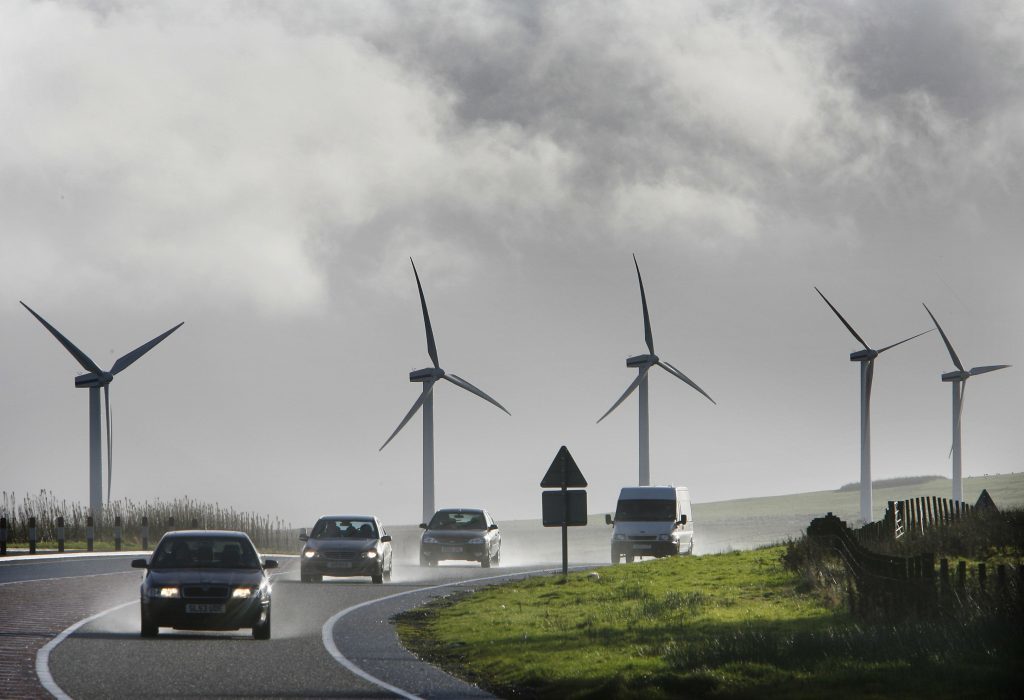
Bold action to tackle climate change could deliver global economic benefits of more than £20 trillion up to 2030, a report has said.
Ambitious moves from backing renewables and improving public transport to restoring forests and making agriculture more sustainable could also deliver millions of jobs, boost health and make cities better places to live.
The study from the Global Commission on the Economy and Climate, which was commissioned by governments including the UK, found that the benefits of clean growth that prevents climate change is being “significantly” underestimated.
It found that bold climate action in energy, cities, food and land use, water and industry could deliver 26 trillion US dollars (£20.3 trillion) in economic benefits up to 2030, compared to a “business as usual” scenario.
It could generate more than 65 million new jobs in low-carbon sectors in 2030 – equivalent to the entire workforces of the UK and Egypt combined.
And measures to cut carbon from energy systems and clean up transport in cities could help avoid more than 700,000 premature deaths from air pollution in 2030.
Reforming existing subsidies and tax breaks for fossil fuels, which act as a break on the switch to cleaner technologies, and putting in a price for carbon pollution could generate some 2.8 trillion US dollars (£2.2 trillion) in government revenues a year by 2030.
That money, equivalent to the total economic output of India today, could be used for other public priorities, the report argues.
But a failure to seize the initiative, and quickly, will expose people to the high risks of climate change, from natural disasters such as floods and storms to disease, droughts, and the impacts of migration and conflict.
The commission, which is presenting the report to UN Secretary-General Antonio Guterres on Wednesday, is calling on governments to urgently push forward with a series of measure over the next two to three years.
They include ramping up efforts on introducing carbon pricing, making companies outline financial risks they face from climate change, reform regulations and incentives that prevent change and unlock innovation.
Governments should also ramp up investment in sustainable infrastructure, from better designed buildings and transport systems through to protecting natural resources such as forests and wetlands.
And they need to make sure the benefits of the shift to a clean economy are more fairly shared out, to ensure people get good jobs, improve their health and are helped out of poverty.
Ngozi Okonjo-Iweala, former finance minister of Nigeria and co-chair of the commission, said: “We are at a unique ‘use it or lose it’ moment.
“Policy makers should take their feet off the brakes, send a clear signal that the new growth story is here and that it comes with exciting economic and market opportunities.”
He said 26 trillion US dollars “and a more sustainable planet are on offer, if we act decisively now”.
Paul Polman, Unilever chief executive and commission co-chair, said momentum from businesses, regions, investors and people was “unstoppable” with those taking action already seeing benefits.
“But if we are to unlock the full benefits of this new low carbon growth opportunity and avoid runaway climate change, economic and financial leaders in both government and the private sector need to do even more, and fast.”
Lord Stern, a co-chair of the commission and author of the Stern Review on the economics of climate change in 2006, added: “We know we are grossly underestimating the benefits of this new growth story.”
He said it offered cities where people could move, breathe and be productive, infrastructure that is clean and efficient and resilient to climate extremes and natural systems that are more productive and robust.
Recommended for you
